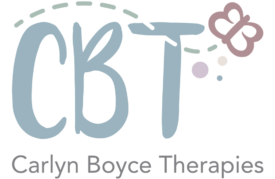Why is it a problem?
Throughout my journey in the mental health field, I’ve gained a deep understanding of the importance of representation. Becoming a principal psychological therapist and clinical lead was a challenging path, especially when I saw so few people who looked like me in leadership roles. It often felt lonely. I had to create opportunities for myself, often without the guidance or support that others might have had. That said, I’ve been fortunate to have had some great managers along the way—though not all—who have been supportive, even when they didn’t share my background. These experiences motivated me to establish my own business, dedicated to helping others so they don’t have to struggle as I did to open doors.
Despite the challenges, I’ve reached my goals faster than most, largely because I refused to let stigma, systemic barriers, or racism stop me. Even when society and its systems seemed to work against me, I persevered. While I’ll share more about my journey in another blog, it’s important to highlight that there are very few Black therapists in the field today.
The therapeutic relationship is essential in therapy, particularly within CBT, where trust and understanding are crucial. My own relationships with clients have been instrumental in their recovery. Yet, for many Black individuals seeking mental health support, the lack of shared cultural experiences often strains this relationship. This isn’t just my observation—it’s a reflection of a systemic issue: there simply aren’t enough Black therapists. More broadly, there aren’t enough ethnically diverse therapists, nor enough therapists who practice cultural humility and adapt their approach to meet the needs of diverse communities.
The Representation Gap: Current Statistics and Demographics
The statistics in the UK are stark. Black individuals are severely underrepresented in the mental health profession, with Black therapists making up only a small fraction of the field. The situation is even more dire for Black male therapists, who are virtually absent. Meanwhile, the demand for culturally competent care among Black clients continues to grow. This disparity not only limits access to effective mental health services but also perpetuates mental health stigma and mistrust within Black communities. The lack of representation means that many Black individuals struggle to find therapists who understand their cultural context, widening the gap between those who need support and those who can provide it.
I often think about these disparities in the context of other troubling statistics. For example, Black women in the UK are nearly four times more likely to die during pregnancy or childbirth compared to white women. They also face a higher risk of birth trauma and complications, often feeling unheard or dismissed by healthcare professionals. These statistics underscore the urgent need for systemic change. If these women or their families sought therapy to cope with such trauma, they would face the same lack of representation. How can people heal from traumas when the support system itself lacks understanding and empathy?
Barriers to Becoming a Black Therapist
The path to becoming a therapist is challenging for anyone, but for those from Black backgrounds, the barriers are particularly steep. Systemic and institutional obstacles—such as the high cost of education, lack of mentorship, and the pervasive impact of racism within academic settings—can make this path feel nearly impossible. The stigma surrounding mental health within Black communities can further deter many from pursuing this career.
However, these challenges also present opportunities for change—opportunities that I am committed to addressing. We must open doors, ensure representation, and create services and leadership that reflect the diverse communities they serve.
The Impact on Black Clients
The shortage of Black therapists has real and significant consequences for Black clients. Many struggle to find therapists who truly understand their cultural context, leading to a disconnect in the therapeutic process. This can result in clients feeling misunderstood, mistrusted, or even further marginalised within a space that is supposed to be safe and supportive. It’s understandable why many Black individuals might avoid seeking help when they feel the system doesn’t truly understand them. Therapy should be accessible to all, but when it fails to recognise the intricate details of those it serves, it becomes too black-and-white in a world that is anything but.
The Importance of Diversity in Therapy
Diversity in therapy isn’t just about numbers; it’s about the richness of perspectives and depth of understanding that diverse therapists bring to their practice. Black therapists offer unique insights that can resonate deeply with Black clients, fostering the connection and trust essential for effective therapy. A more diverse mental health workforce benefits everyone, bringing a broader range of experiences, ideas, and strategies to the field. Services will start to feel accessible and accessibility is important, it is the front door.
My Commitment to Mentoring the Next Generation
While it’s important to acknowledge the challenges, I also want to focus on Black joy and the positive change we can create. Recognizing the importance of increasing the number of Black therapists, I’ve committed to being part of the solution. Through mentorship, I aim to support and guide individuals from Black backgrounds who aspire to enter the mental health profession. Mentorship is a powerful tool—it provides the knowledge, skills, confidence, and encouragement needed to navigate and overcome the challenges that lie ahead.
I’m working to create pathways for aspiring Black therapists by connecting them with resources, opportunities, and networks that can help them thrive. Whether offering guidance on academic and career choices or simply being a source of support and encouragement, my goal is to make the journey into the mental health field more accessible and less daunting for Black individuals. I have an amazing testimonial from one of my mentee's: on my mentoring page, check it out.
The Path Forward: A Call to Action
While the challenges are significant, the potential for change is even greater. I invite others in the mental health field to join me in this effort—to mentor, support, and advocate for greater diversity within our profession. By working together, we can help ensure that the next generation of therapists reflects the diverse communities they serve.
If you’re someone interested in becoming a therapist, especially if you come from a Black background, I strongly encourage you to pursue this path with determination. I hope that when you read about my journey ( blog post), you'll find inspiration in my determination—I didn’t let anyone or anything stop me, and I continue to push forward every day. I won’t lie, it’s hard, but it’s absolutely worth it. There are resources and networks available to support you, and your voice and perspective are urgently needed in this field.
Conclusion: Building a Better Future Together
In conclusion, the shortage of Black therapists isn’t just a statistic; it’s a call to action. By mentoring and supporting aspiring Black therapists, we can help bridge the gap and create a mental health field that truly serves everyone. The journey may be challenging, but together, we can build a more inclusive and effective mental health care system—one therapist at a time.
I wanted to write two blog posts in honour of Black History Month this October. I hope they’ve helped you get to know me better, understand my passion, and perhaps even inspired you in some way. If they have, I’d love to hear your thoughts—feel free to leave a comment!

